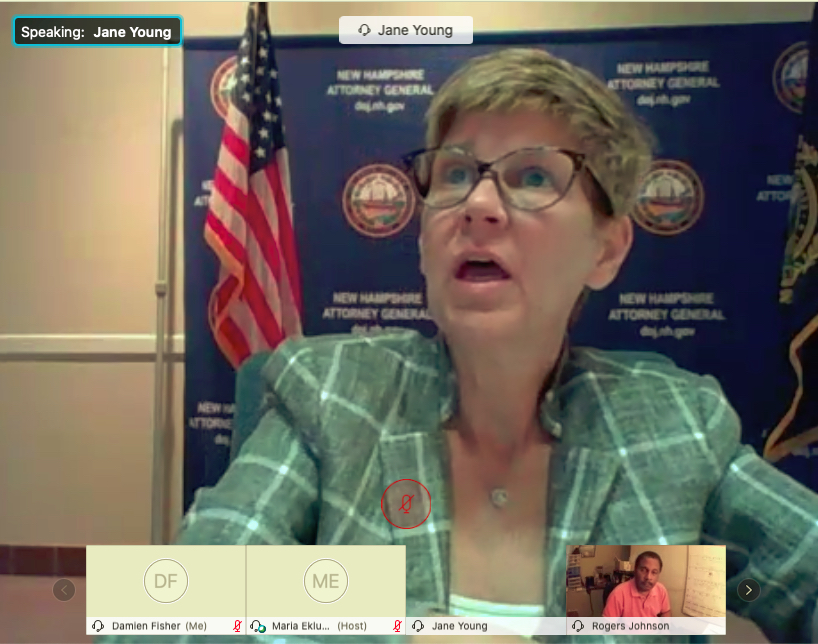By DAMIEN FISHER, InDepthNH.org
All law enforcement-involved shootings in New Hampshire are investigated by the New Hampshire Attorney General’s Office and the State Police Major Crimes Unit, but not in an open way that builds trust that police officers who take lives are being held accountable, according to Manchester attorney Larry Vogelman.
“There’s got to be a better way. There’s got to be some sort of civilian oversight,” Vogelman told members of the Commission on Law Enforcement Accountability, Community and Transparency on Thursday.
Suggestions on ways to create a more open and accountable police oversight program in New Hampshire are likely heading to Gov. Chris Sununu’s desk as the commission starts to wrap up its work, with the final report due at the end of the month. The commission met Thursday to take public testimony and hear recommendations on police accountability, and Vogelman said it’s time for the state to restore confidence in the 95 percent of good officers out on the street.
“It’s five percent of the police poisoning the well, and the reason they are poisoning the well is because there is no oversight,” Vogelman said.
When it comes to police shootings, the state will investigate to make sure a crime was not committed, but that isn’t enough, Vogelman said. In a 2013 Weare shooting, police gave investigators three different versions of events, according to Vogelman.
“None constituted self-defense, but the Attorney General declined to prosecute,” Vogelman said.
Vogelman went on to represent in court the family of the man shot and killed by police securing a $300,000 settlement.
Former Cheshire County Department of Corrections Superintendent Rick Van Wickler told the commission that continued police training is inadequate, and the lack of transparency in how police officers and correctional officers are disciplined breeds mistrust among the public.
Police and corrections officers are required to complete eight hours of ongoing training per year after they are certified. That’s not enough, according to Van Wickler, and these officers are too often under-prepared to deal with challenges.
Van Wickler wants to see police certification and discipline taken out of the secret realm of the Laurie List and made public. He said the state can treat law enforcement officers in the same way medical professionals are treated with public discipline hearings to deal with alleged misconduct.
“If the public felt confident the complaints were addressed in a sober, meaningful, serious way, there would be a lot more faith in police in New Hampshire,” Van Wickler said.
The Laurie List, or the Exculpatory Evidence Schedule, which tracks law enforcement officers with credibility issues ought to be made public, according to Gregory Sullivan, the First Amendment attorney who is part of the lawsuit to open up the list. Sullivan said ditching the Laurie List and making police personnel records subject to the state’s Right to Know law will benefit police.
“The sunshine that these efforts are headed for will show the good work police officers do 99 percent of the time,” Sullivan said.
Gov. Chris Sununu’s news release sent out Thursday:
Today, Governor Chris Sununu released the second report from the New Hampshire Commission on Law Enforcement Accountability, Community, and Transparency (LEACT). This is the second report from LEACT, and focuses on the current state of relations between law enforcement and the communities they serve including recommendations from the Commission regarding reforms and improvements in this area.
“I would like to thank members of the Commission for their continuous work in this important mission,” said Governor Chris Sununu. “As we dig in to this report, it is important to examine each and every one of the recommendations to see how they could be implemented and the feasibility of their enactment. I have tasked Major John Marasco at the Department of Safety to track the progress of these recommendations to see what additional steps or resources may be needed for implementation.”
The LEACT is working on a third report focusing on reporting and investigating police misconduct.
Note: A copy of the report can be found here.





